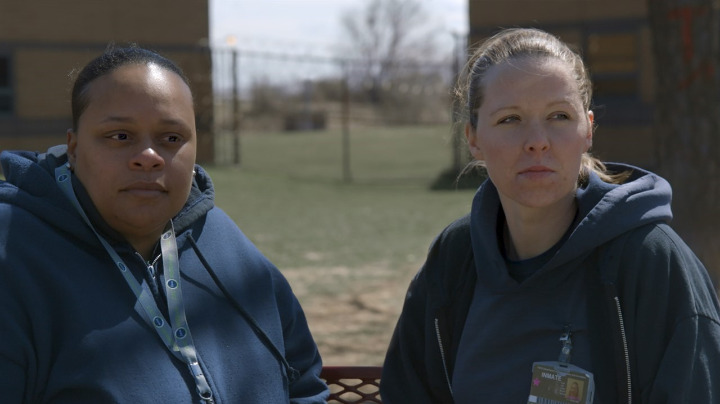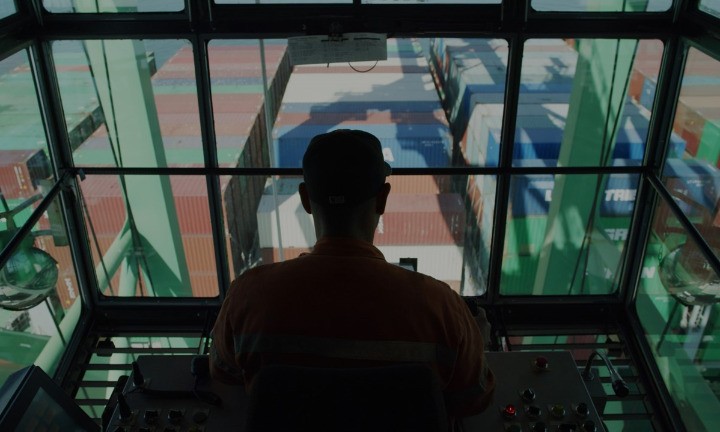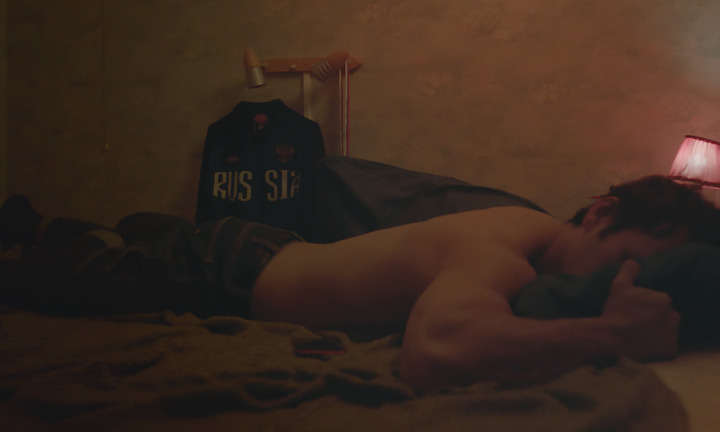This documentary about three mothers on the brink of being released from prison creeps up on you. At first, it seems a fairly pedestrian account of visits to the jail, the goings on inside a program designed to help women adjust in the outside world, and the many anxieties the women feel about reuniting with families. But by the end, the cumulative effect is powerful.
Lydia went from soccer mom to drug user when she became dependent on painkillers after a massive car accident. She was managing her addiction until her dealer ran out of her preferred pharmaceutical and offered her heroin instead. She wound up in jail for two and a half years, convicted of theft after stealing to get the money for her next fix.
Amanda, who was brought up in a crack hotel with addicts surrounding her – including her mother – all around knew from the time she was 12 that she’d wind up in jail. With money owed to her dealer – and with her life on the line – she robbed a drug store and was given a nine and a half-year sentence.
Tamika began selling drugs as a teenager, her one path out of poverty and wound up in prison for 10 years. Her story differs from the other two in that between the time she was charged and convicted, she cleaned up and launched a legitimate business, a restaurant, to which she hopes to return.
The film tracks the three women as they attend a group, led by Malika, herself an ex-convict, designed to give them the inspiration and confidence to change their lives on the outside. They and the other participants are well-spoken, intelligent and prepared for self-reflection. Obviously, these 30 women were chosen for the group precisely because they have these qualities, but even knowing that, Apart puts a humanizing face on a population often badly stereotyped as only volatile and dangerous, a la Orange is the New Black.
On their release, Lydia and Amanda have the typical ex-con problems. Especially distressing is their pursuit of employment, because almost no one will hire someone with a prison record, but they show tremendous grit in keeping at it.
The most moving elements of the story involve the relationships between the prisoners and the children they’ve left behind. Lydia has two boys, one bright-light pre-teen and the other a sullen teenager, furious at his mother for abandoning the family. Lydia’s pain is palpable as she tries to rebuild her connections.
Amanda reunites with her football-loving son but, while living with his grandmother in his mom’s absence, he’s become attached to his new school and friends. Amanda can’t offer him any social life and is forced to come to terms with the fact that pulling him out of old school would be counterproductive..
Throughout Tamika’s incarceration, daughter Bailey has been led to believe her mother is in school and, in an emotional sequence, learns the truth. Redfearn’s camera captures her look of pure shock. But Tamika’s parents are supportive and help give a context to the mistakes Tamika and many other women in prison have made.
The prison here is plainly unusual, with progressive programs in place and a supportive community of ex-offenders stepping in to advise the residents heading out. So this is not, by any means, a picture of America’s privatized prison system as a whole, which is largely only punitive and casts those imprisoned into conditions of slave labour, while reaping unseemly profits. But by the end of the film, you get a sense of the larger picture of circumstances that circumscribe women’s lives and who the real culprits are: greedy drug companies that let the opioid crisis get out of hand, all the forces that keep women attached to male criminals and, of course, profound poverty.
Apart screened at Hot Docs 2021.











